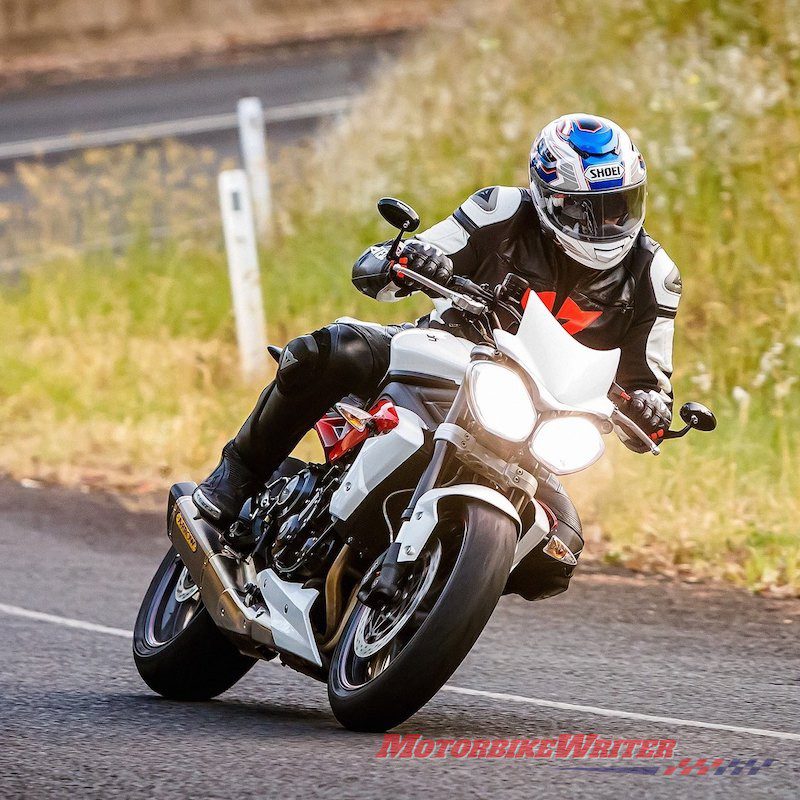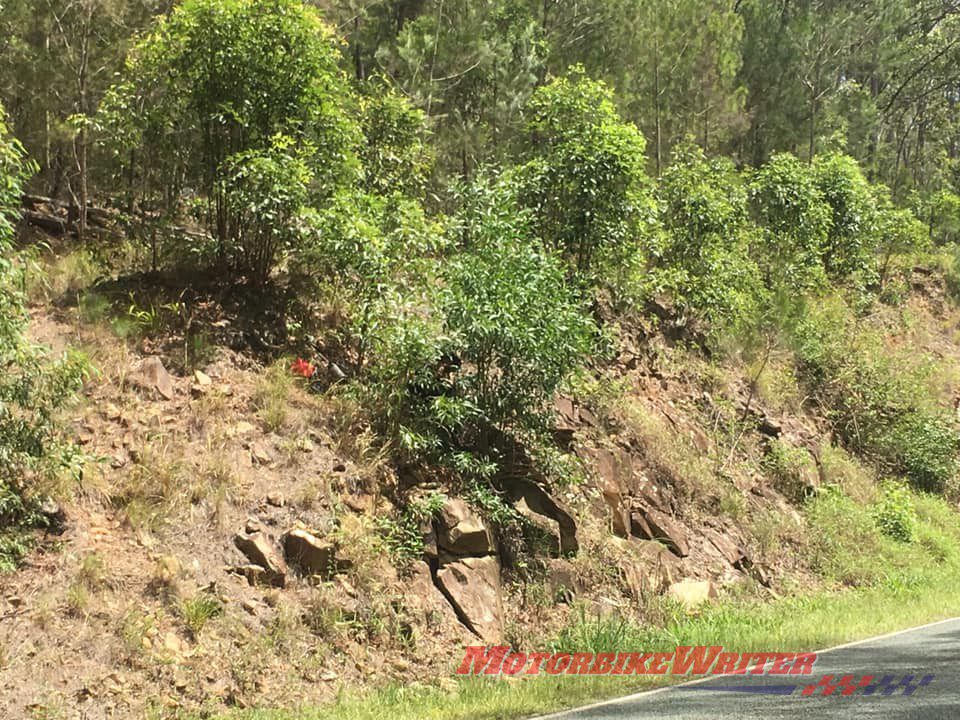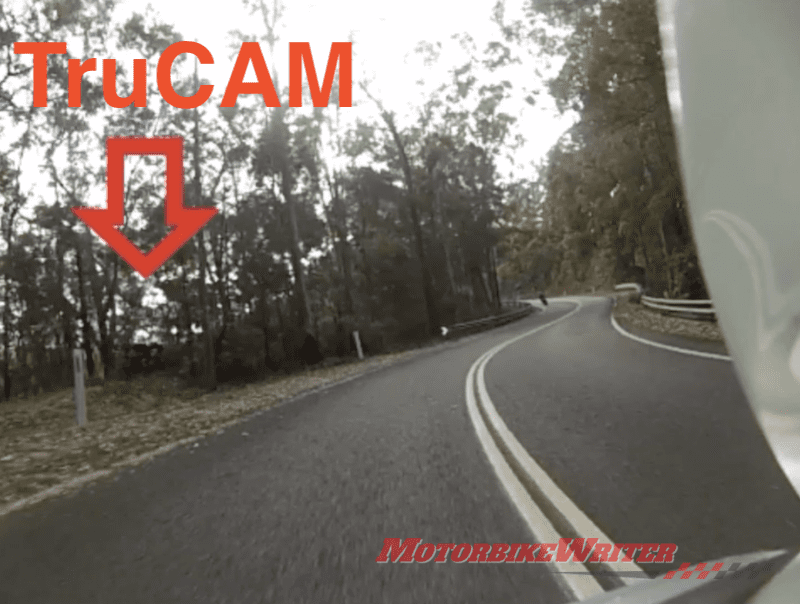Brisbane riders who spent Wednesday’s Ekka Holiday riding the famed Mt Glorious Rd may find they have an unwelcome TruCAM speeding fine in the mail in the next couple of weeks.
This video was recorded by rider David Englebright, showing police in the bushes using the TruCAM hand-held laser digital camera to record speeding offences.
Holiday surprise
“Being a public holiday in Brisbane a lot of people were out enjoying a drive or ride over Mt Glorious,” he says.
“They will get a rude shock in a few weeks.
“Little did they know a policemen was hiding in the bushes of the far side of Mt Glorious on a downhill selection of road with a TruCAM taking pics of vehicles going down the hill.

“This is a section where a billy cart would do more than 60km/h.
“This is no deterrent to speeding, just revenue raising.”
While there is no longer any requirement for speed camera detection signs, the Queensland police website clearly states: “It is not the policy of the Queensland Police Service to deliberately conceal speed cameras.”
Covert concerns
This is yet another incident which may spark debate over the lack of speed deterrence in covert operations while others will argue “if you’re not speeding, you have nothing to worry about”.
Queensland Police Union president Ian Leavers says these “sneaky” devices do not reduce the road toll nor stop motorists from speeding.
“Getting a ticket in the mail up to a month after speeding when you can barely remember even where you were back then, has no effect and is quite rightly cynically viewed as revenue raising,” he said.
RACQ technical and safety policy spokesman Steve Spalding says they also prefer a visible police presence.
“Our members have repeatedly told us that over the years, they much prefer to see a police officer use a marked vehicle, not just for speeding, but for all of the other problem behaviours that we see on the road,” he says.
Is covert detection legal?

Well, yes and no. It depends on the state and how the speed detection equipment is deployed.
We asked police in every state for their policies on covert speed detection and most replied.
Victoria Police say mobile speed cameras are “not deployed in a concealed way”, but didn’t answer questions about handheld devices and cops hiding in bushes.
South Australia Police say they make “no apologies about using covert, camouflaged cameras to detect dangerous road behaviour”.
WA Police basically told us it was none of our business: “We use various tools to assist in our traffic enforcement capabilities. We will not be providing details of specific tools or methodologies.”
NSW Police say they “use a range of enforcement strategies to assist in reducing road trauma”. But, like the WA cops, they say it’s none of our business.
“For operational reasons it would be inappropriate to discuss the guidelines surrounding these strategies. If riders and drivers observe the speed limits, then they have nothing to be concerned about,” they say.
Queensland Police are a little vague, telling us the Queensland Camera Detected Offence Program “utilises an evidence-based mixture of covert and marked camera operations”.
MUARC report



Politicians and police typically cite a Monash University academic and an Auditor General’s report that back covert speed cameras as more effective at reducing general speeding than high-visibility cameras.
Monash University Accident Research Centre professor Max Cameron says high-visibility speed cameras are only good for reducing speed at a black spot.
Mobile speed cameras were originally introduced to reduce speed at black spots. NSW still has very prominently signed fixed and mobile speed cameras, Western Australia is now trialling more visible speed cameras and England is going all-out to make the cameras much more visible.
However, Queensland has removed the signs warning of mobile speed cameras and a report by Queensland’s auditor-general found they are not always deployed at the right time, in the right location, or in the “right mode” (not covert enough).
The report says only 16.3% of mobile deployment hours is covert because police want to avoid perceptions of revenue-raising.
It recommends that a high percentage of covert deployment would prompt a general deterrence to speeding.
Professor Cameron agrees: “… if you’re trying to affect speeding all the time then the best idea is to make sure the cameras aren’t predictable or apparent and to operate them covertly,” the professor says. “The idea of being conspicuous is really in the wrong direction.”



